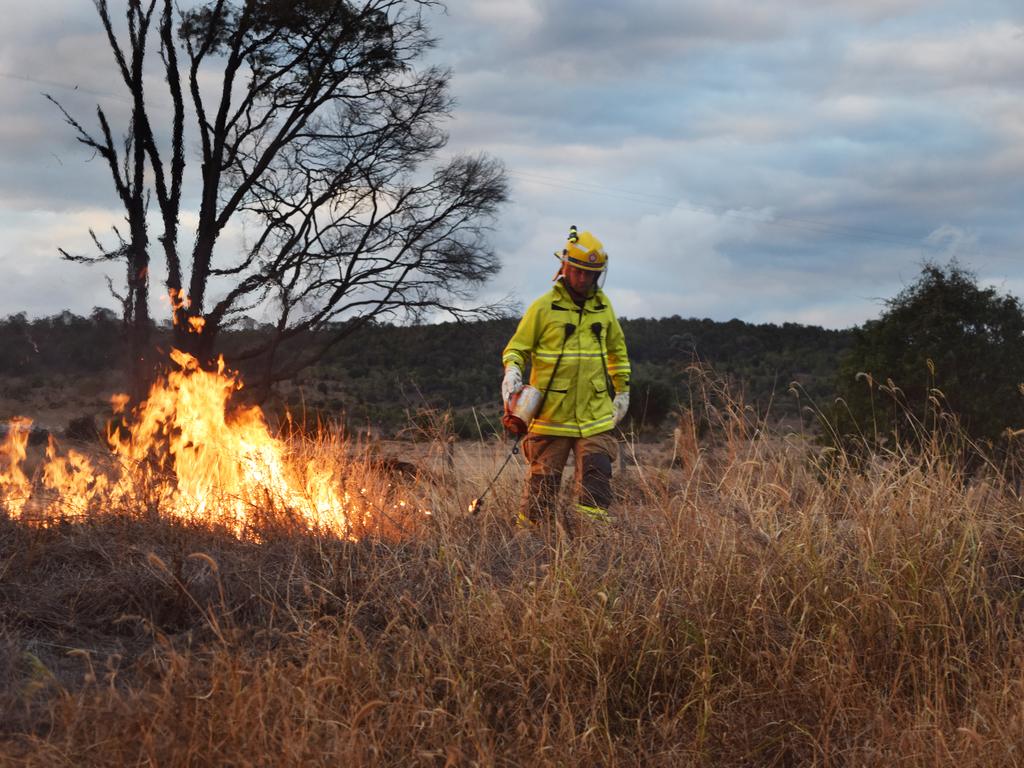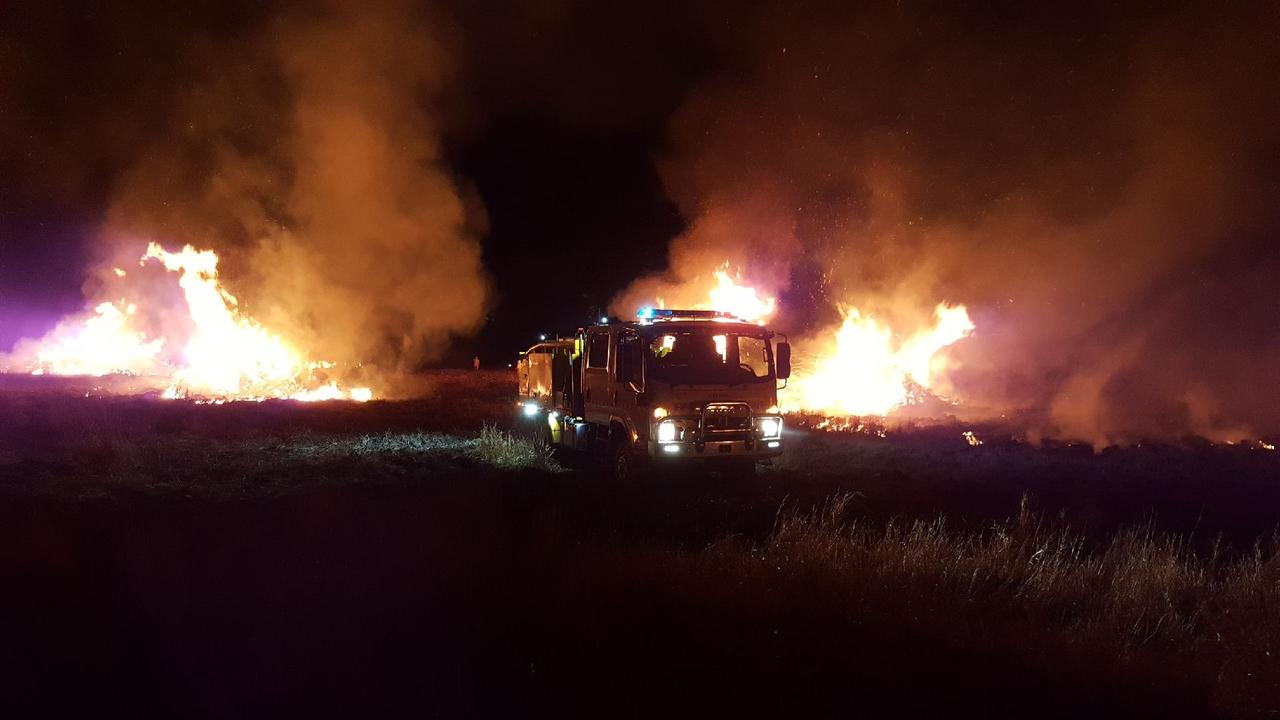Ecological concerns not the cause of reduced hazard reduction burning, fire experts say
Experts have slammed claims about reduced hazard-reduction burning that took place ahead of this year’s devastating fire season.
FIRE experts have slammed claims that environmental concerns have dramatically limited preventive burning activities in the lead-up to this year’s “unprecedented” bushfires in Queensland and New South Wales.
University of Tasmania Fire Centre Research Hub director Professor David Boman said prescribed or planned burning prior to fire season was an effective method of reducing the risk of bushfires, but had become increasingly difficult.
Full list of bushfire alerts and evacuations
Waterbombing aircraft crash-lands fighting bushfires in Queensland
QLD bushfire update: Protecting your health, safety from smoke inhalation
“Prescribed burning is elective and its function is to reduce the fire hazard in the bush, so that should a fire subsequently encounter an area that’s been treated the behaviour of the fire changes and increases the likelihood that fire managers are able to contain it,” he said.
“Not to be confused with backburning, which is an emergency fire fighting tactic.
“There is very good evidence that fuel management is an important technique in the firefighting arsenal, but it requires an understanding that there are many constraints with fuel management using prescribed burning.”
Professor Boman said recent claims that ecological and environmental concerns have had an impact on fuel management are “disingenuous”.
“Frankly, those concerns are very much to the side and haven’t significantly impeded fuel management programs,” he said.
“Fuel management programs have been impeded by a constellation of practical constraints.”
He said those constraints include the administration of the fire management programs, legal liability and consideration of the risk, risk to crews, risk adverse outcomes such as smoke pollution and the extreme costs.
“One important adverse outcome is smoke pollution which can be very severe and cause significant ill health,” Professor Boman said.
Dr Sarah Perkins-Kirkpatrick from the Climate Change Research Centre said the window for hazard-reduction burning had reduced due to climate change.

“The window for appropriate hazard reduction burns is decreasing, usually these and done in winter or early spring and the conditions are becoming less and less favourable,” she said.
“At the moment there is also an issue due to the current drought, there’s been little chance to do some of these prescribed burns because it’s been really dry.”
University of Wollongong Centre for Environmental Risk Management of Bushfires director Professor Ross Bradstock said it was too soon to understand exactly why this year’s bushfires happened.
He said what was known was that the severity of bushfires and fire weather had increased, and the east coast of Australia was facing “uncharted territory”.
“The most concerning thing to emphasise is that it’s not over. We’re not even into summer yet, and given the weather prognosis over the next week and a bit, it’s just going to keep going and going,” Prof Bradstock said.
He acknowledged a large proportion of bushfires were caused by arson or reckless behaviour.



